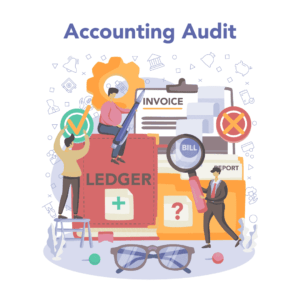When hiring an auditor, the stakes are high. You’re trusting someone with the financial health of your business, and the right auditor can mean the difference between smooth operations and potential financial risk. To ensure you find the right fit, it’s crucial to ask the right interview questions for auditors. This guide will help you navigate through the hiring process with confidence.
Why It’s Important to Interview Your Auditor
Choosing an auditor isn’t just about credentials; it’s about finding someone who understands your business and can communicate complex financial information in an understandable way. A successful audit depends on the relationship between you and your auditor. Asking the right questions can reveal whether they have the expertise, communication skills, and ethical approach that match your business needs.
Key Interview Questions for Auditors
1. What Experience Do You Have in My Industry?
Not all industries are the same, and different sectors have unique accounting and compliance requirements. An auditor with industry-specific experience is more likely to understand the challenges and opportunities within your business. Ask for examples of previous clients or audit cases in your field.
Why This Matters:
Your auditor should be familiar with the nuances of your industry to provide accurate advice and help you avoid costly mistakes. For example, if you’re in the food business, an auditor experienced in food regulations will know the specific legal and tax obligations you must meet.
2. How Do You Keep Up with Changing Laws and Regulations?
Accounting laws and tax regulations change frequently. You need an auditor who stays up to date with the latest changes in the law to ensure compliance and avoid penalties. Ask how they stay informed and what steps they take to keep their clients aware of these changes.
Why This Matters:
Up-to-date knowledge is critical for effective auditing. An auditor who regularly participates in professional development or is part of a network of experts is more likely to provide you with cutting-edge insights.
3. Can You Describe Your Approach to Risk Assessment?
One of the key roles of an auditor is to identify risks in your financial practices. Ask the auditor about their risk assessment approach. How do they spot potential issues, and what methods do they use to mitigate them?
Why This Matters:
Risk assessment is at the heart of auditing. A proactive auditor will not only point out risks but also suggest ways to minimize them, protecting your business from unforeseen financial issues.
4. How Do You Ensure Confidentiality?
Financial data is sensitive, and you need to know that your auditor will handle it with the utmost care. Ask them about their confidentiality policies and how they ensure your information stays protected.
Why This Matters:
Confidentiality is non-negotiable in financial matters. You must be sure that your data won’t be compromised, and that the auditor has strict protocols in place to safeguard it.
5. Can You Provide References?
A reputable auditor will have satisfied clients willing to speak on their behalf. Ask for references and follow up to get a sense of the auditor’s work ethic, communication skills, and reliability.
Why This Matters:
Hearing from previous clients can give you insights into the auditor’s strengths and weaknesses, helping you make a more informed decision.
6. How Do You Communicate Findings and Recommendations?
Financial reports can be dense and difficult to understand. Ask how the auditor will present their findings and whether they provide actionable recommendations.
Why This Matters:
It’s essential that you can easily interpret the auditor’s report. Clear communication ensures that you can act on their advice quickly and effectively, without needing additional clarification.
7. What Is Your Fee Structure?
Transparency in pricing is essential to avoid surprises down the road. Ask for a clear explanation of how they charge—whether it’s an hourly rate, flat fee, or project-based.
Why This Matters:
Auditor fees can vary widely, and understanding the cost upfront helps you budget properly. Be wary of any auditor who cannot clearly explain their fee structure.
8. What is Your Experience with Tax Audits or Government Audits?
If you anticipate the possibility of a tax or government audit, it’s important to know if your auditor has experience in these areas. Ask about specific cases and outcomes to gauge their expertise.
Why This Matters:
Facing a tax audit is stressful. An auditor who has successfully managed such situations before can provide peace of mind and help you navigate the process smoothly.
Red Flags to Watch Out For
- Vague Answers: If an auditor struggles to provide clear answers, it may indicate a lack of expertise or preparedness.
- Inflexible Communication Style: If the auditor doesn’t adapt their communication style to your needs, you may have difficulty understanding their reports.
- No References: An unwillingness to provide references is a major warning sign.
- Lack of Transparency in Fees: If the auditor is unclear or evasive about fees, it may lead to unexpected charges.
Conclusion: Making the Right Choice
Choosing the right auditor is a critical decision that can affect your business’s financial health. By asking the right interview questions for auditors, you can ensure that you find an auditor who is not only qualified but also the right fit for your business culture and needs. Take your time, ask the tough questions, and choose wisely. Your business’s financial future depends on it.

